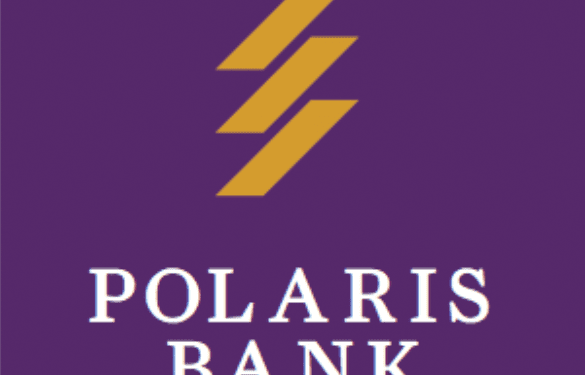The economic hardship has indeed taken hold of Nigeria, impacting lives and livelihoods. However, Nigeria’s banking system was swift to respond. The Central Bank of Nigeria (CBN) took immediate steps, rolling out policies to combat the effects of the economic hardship on critical sectors including raising interest rates at its next Monetary Policy Committee (MPC) meeting on February 26-27, 2024, even as headline inflation soared all through 2023 to a 27-year high of 28.9%, driven by food inflation. Under the acting CBN governor, Olayemi Cardoso, the bank raised interest rates twice.
In this regard, the Bank’s intervention initiatives encompass real sector programmes, particularly, agriculture, small and medium enterprises, infrastructure and youth empowerment.
The Central Bank of Nigeria (CBN) has a mission to ensure monetary, price and financial system stability as a catalyst for inclusive growth and sustainable economic development. To achieve this, the Bank must maintain a sound financial environment that supports the ease of access to finance by the real sector. The Bank’s commitments to the economy can be classified as core and developmental.
In addition to this Polaris Bank’s involvement in development financing is driven by the need to address market failures resulting from the apathy of banks to lend to critical sectors/segments of the economy due to perceived risks. Through its interventions, the Bank has improved access to affordable and long-term finance to the real sector, de-risked these priority sectors by incentivizing banks and other financial institutions to lend, and stimulated investments in the productive base of the economy.
When Polaris Bank was created in September 2018 to inherit the assets and liabilities of the defunct Skye Bank Plc, the banking industry did not expect much in terms of performance from the management of the ‘Bridge Bank’.
The most optimistic view then was that the CBN appointed management, led by Tokunbo Abiru would stabilize the bank and prepare it for eventual acquisition by new owners.
This expectation was understandably driven by the deteriorating conditions of the defunct Skye Bank, occasioned by years of poor corporate governance which triggered rise in non-performing loans (NPLs) to almost 80 percent, while other prudential and adequacy ratios fell far below regulatory thresholds and hence the eventual intervention of the CBN on July 4th 2016.
Polaris Bank has however defied these challenges and skepticism by posting a very profitable financial performance at the end of its first full year of operations.
The interventions of the Bank are targeted at priority sectors of the economy that have the potential to transform the productive base of the economy to facilitate growth, stimulate sustainable jobs, expand the non-oil export basket to enhance the foreign exchange earning capability of the economy, and facilitate financial inclusion.
As a matter of fact, a survey by KPMG Nigeria listed Polaris Bank as the most improved bank under the retail segment.
The study titled ‘KPMG Nigeria Banking Industry Customer Experience Survey’ said Polaris Bank moved up five places to sixth position in the retail segment and it was also rated as third under the small and medium-sized enterprise (SME) segment.
KPMG Nigeria said many customers praised the bank for its personalised service, proactive approach to problem-solving, and faster turnaround times.
The firm said its survey showed that the bank also significantly improved its mobile banking propositions.
This is so, because the emphasis of its interventions is to stimulate the flow of affordable credit to targeted priority sectors with high growth impact and employment elastic potential, such as agriculture, manufacturing, energy/infrastructure, healthcare, MSMEs and exports.
KPMG Nigeria said point of sale (POS) related issues such as timeliness of settlements and resolution of disputes were some of the most critical measures for SMEs this year.
The firm said VULTe, Polaris Bank’s digital platform, has been a game changer, making life seamless for personalised and business offerings.
Between October 2022 and February 2023, KPMG Nigeria said over N1.5 billion loans were disbursed through VULTe to individuals and SMEs to aid personal and business growth in the country.
The firm also said VULTe’s performance surpassed its competitors and earned recognition from the Nigerian Interbank Settlement Systems (NIBBS).
Speaking on his experience with Polaris Bank, Chibuzor Nwachukwu, a civil servant living in Abuja, said the bank has made significant improvements in VULTe, its digital banking platform.
He said VULTe enabled customers to access their accounts, make transactions, and manage their finances more conveniently and seamlessly.
“This has been particularly great. I found it most useful especially during the COVID-19 pandemic as many customers I know have had to rely on the digital bank to conduct their daily transactions,” Nwachukwu said.
Polaris Bank Limited’s full year audited financial results for the Year ended December 2020 posted a Profit Before Tax (PBT) of N28.9billion. The results, which show the Bank’s second year performance scorecard after two years of operation, have further consolidated the Bank’s position as focused on the path of profitability, growth and value creation.
In Proshare’s Lead Analysis Report on the Bank’s 2019 audited financial results last year, its first full year of operation titled “Polaris Bank records impressive 2019 financial results”, we noted that the results were impressive especially in the context of its legacy constraints; the 2020 results confirm that profitability and growth may now be the trend, rather than a one-off performance.
Driven by the focus to build the foundations of a bank for the future, as well as the conviction that the future of banking globally and in Nigeria would be shaped by technology, with banks significantly dependent on technology for mobilising savings, extending and administering loans, payments analytics and management decision making. The Omokayode Lawal led management, built on the legacies of his predecessor, implementing a strategically crafted Corporate Transformation Plan to position the bank for retail banking dominance through digital technology.
This strategic effort to focus on the retail segment of the market through digital technology and agency banking led to a marked shift in the structure of the bank’s deposit base, away from the volatile and high cost ‘term deposits’ to the stable and low cost ‘savings deposits’.
Olamide Adeniji is a member of the editorial team of TheScript Newspaper




